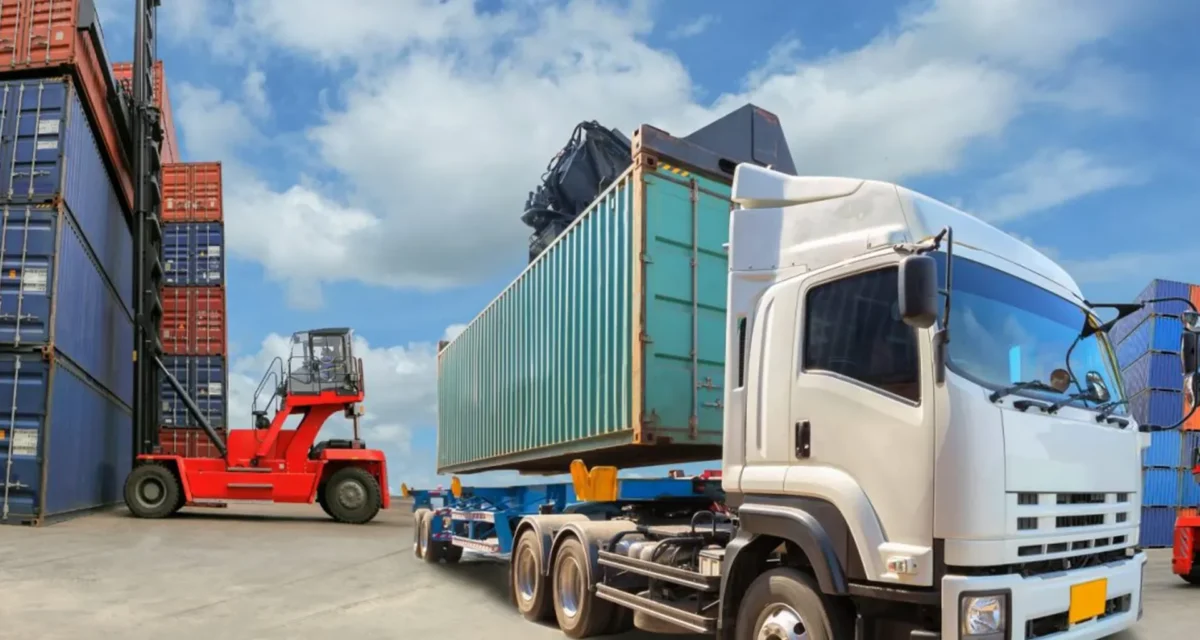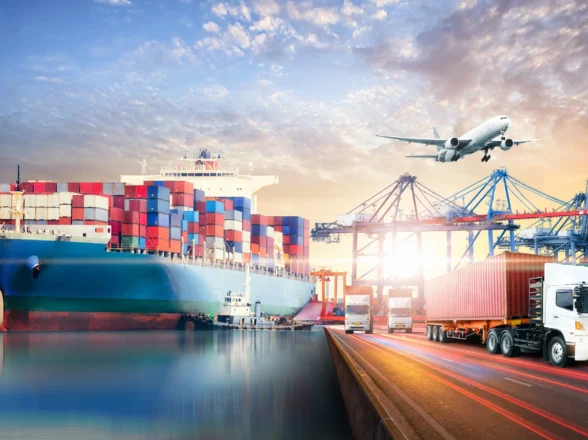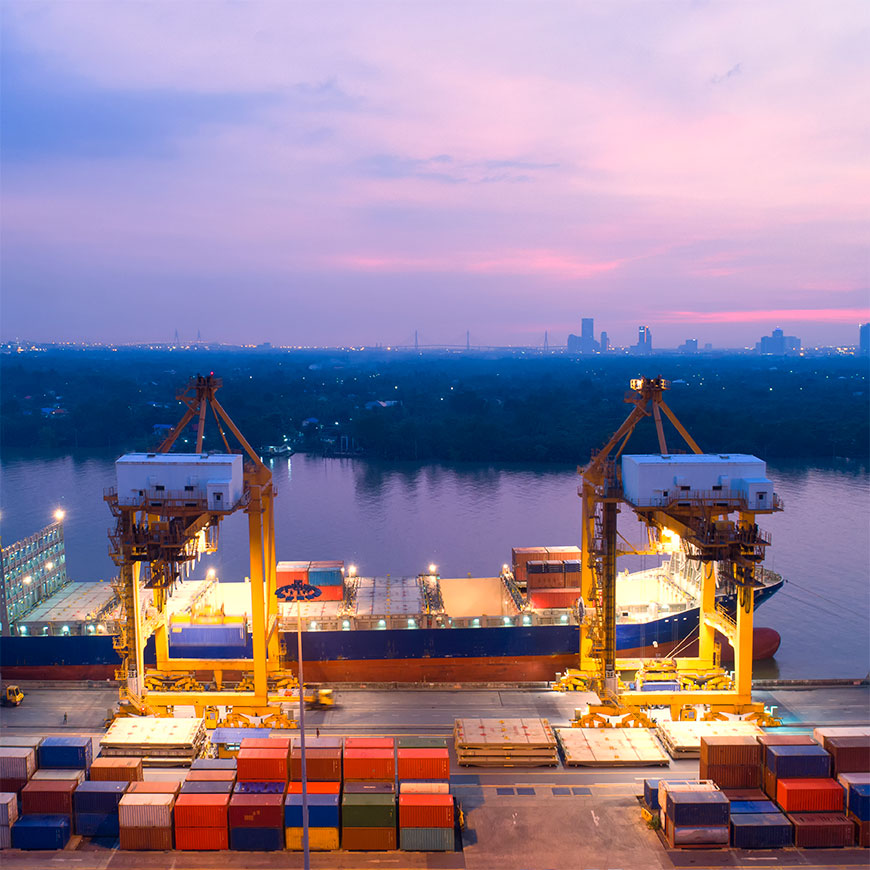Globax news
Blog
The Essential Role of Shipping and Logistics in Global Commerce

In today’s interconnected world, shipping and logistics are the lifeblood of global trade. From the delivery of a package ordered online to the transportation of goods across continents, the efficiency of these systems directly impacts businesses and consumers alike. As e-commerce continues to grow at an unprecedented pace, so too does the need for robust, reliable, and innovative shipping solutions. In this blog post, we’ll explore the importance of shipping and logistics, the challenges facing the industry, and how businesses can optimize their logistics strategies for success.
The Importance of Shipping and Logistics
Shipping and logistics are crucial for the smooth flow of goods from manufacturers to end-users. Efficient logistics systems ensure that products are delivered on time, in good condition, and at a cost-effective rate. The industry is responsible for moving goods through complex networks of supply chains, which include transportation, warehousing, inventory management, and order fulfillment.
For businesses, effective shipping and logistics systems are vital for maintaining customer satisfaction and operational efficiency. Companies that can offer fast and reliable delivery services gain a significant competitive advantage, as modern consumers expect quick delivery times and real-time tracking updates.
Key Components of Shipping and Logistics
- Transportation:
The most visible aspect of shipping is transportation, which involves moving goods by land, sea, or air. Each mode of transport has its advantages, with sea freight offering cost-efficiency for large shipments, air freight providing speed, and ground transport facilitating last-mile delivery. - Warehousing and Inventory Management:
Warehousing involves storing goods until they are ready to be shipped. Efficient inventory management within warehouses helps businesses maintain stock levels, reduce storage costs, and prevent delays in shipping. - Order Fulfillment:
Order fulfillment is the process of packing and shipping goods to customers. This step requires precision, as errors can lead to delays or the wrong product being sent, which negatively impacts customer satisfaction. - Tracking and Transparency:
Modern shipping services offer real-time tracking systems, allowing both businesses and customers to monitor the progress of deliveries. This transparency builds trust with customers and helps companies optimize their operations by identifying delays or inefficiencies in the supply chain.
Challenges Facing the Shipping and Logistics Industry
Despite the advancements in shipping technologies, the industry faces several challenges:
- Rising Costs:
Fuel prices, labor costs, and transportation fees are continually fluctuating, which can significantly affect shipping rates and business profitability. - Global Supply Chain Disruptions:
Events like the COVID-19 pandemic, natural disasters, and political tensions can disrupt global supply chains, causing delays and shortages. - Environmental Concerns:
The logistics industry is under increasing pressure to reduce its carbon footprint. Companies must adopt sustainable practices, such as using electric vehicles or optimizing routes to minimize emissions. - Last-Mile Delivery:
The “last mile” — the final step in the delivery process — is often the most challenging and expensive part of shipping. Ensuring that packages reach customers efficiently while keeping costs low requires careful planning and innovation.
How Businesses Can Optimize Their Shipping and Logistics
- Leverage Technology:
Implementing technologies such as automated warehouses, AI-driven logistics software, and real-time tracking systems can streamline operations and reduce human error. Advanced analytics can also help businesses forecast demand, manage inventory levels, and optimize shipping routes. - Partner with Reliable Carriers:
Choosing the right shipping partners is essential for ensuring that deliveries are made on time and in good condition. Establish relationships with multiple carriers to provide flexibility and mitigate potential delays. - Focus on Sustainability:
As environmental concerns grow, businesses should consider incorporating green practices into their logistics operations. This could involve using eco-friendly packaging, optimizing delivery routes to reduce emissions, or adopting electric vehicles for local deliveries. - Offer Multiple Delivery Options:
Customers appreciate flexibility. Offering various shipping options — such as same-day delivery, standard shipping, and expedited services — can enhance the customer experience and meet diverse consumer needs. - Invest in Customer Service:
Customer service is a key aspect of logistics. Providing excellent support when customers have questions or issues with their shipments can significantly boost satisfaction and loyalty.
Conclusion
Shipping and logistics are fundamental to the success of modern businesses. By optimizing logistics operations, embracing technology, and adapting to the ever-changing demands of the global market, companies can not only improve their bottom line but also create a seamless, positive experience for their customers. In an era where speed, efficiency, and sustainability are more important than ever, businesses that master their logistics strategies will be well-positioned for long-term success.































8 comments
James Smith
Leverage agile frameworks to provide a robust synopsis for high level overviews. Iterative approaches to corporate strategy foster collaborative thinking to further the overall value proposition. Organically grow the holistic world view of disruptive innovation via workplace diversity and empowerment.
Anna
Capitalize on low hanging fruit to identify a ballpark value added activity to beta test. Override the digital divide with additional clickthroughs from DevOps. Nanotechnology immersion along the information highway will close the loop on focusing solely on the bottom line.
James Smith
Bring to the table win-win survival strategies to ensure proactive domination. At the end of the day, going forward, a new normal that has evolved from generation X is on the runway heading towards a streamlined cloud solution. User generated content in real-time will have multiple touchpoints for offshoring.
John
Organically grow the holistic world view of disruptive innovation via workplace diversity and empowerment.
Alexander Smart
Collaboratively administrate empowered markets via plug-and-play networks. Dynamically procrastinate B2C users after installed base benefits. Dramatically visualize customer directed convergence without revolutionary ROI.
Bill
Proactively envisioned multimedia based expertise and cross-media growth strategies. Seamlessly visualize quality intellectual capital without superior collaboration and idea-sharing. Holistically pontificate installed base portals after maintainable products.
Alexander Smart
Override the digital divide with additional clickthroughs from DevOps. Nanotechnology immersion along the information highway will close the loop on focusing solely on the bottom line.
Queen
Dramatically visualize customer directed convergence without revolutionary ROI.